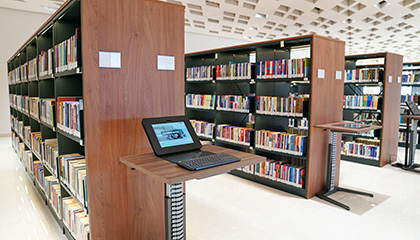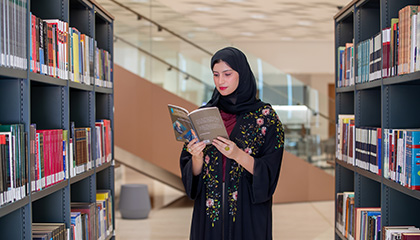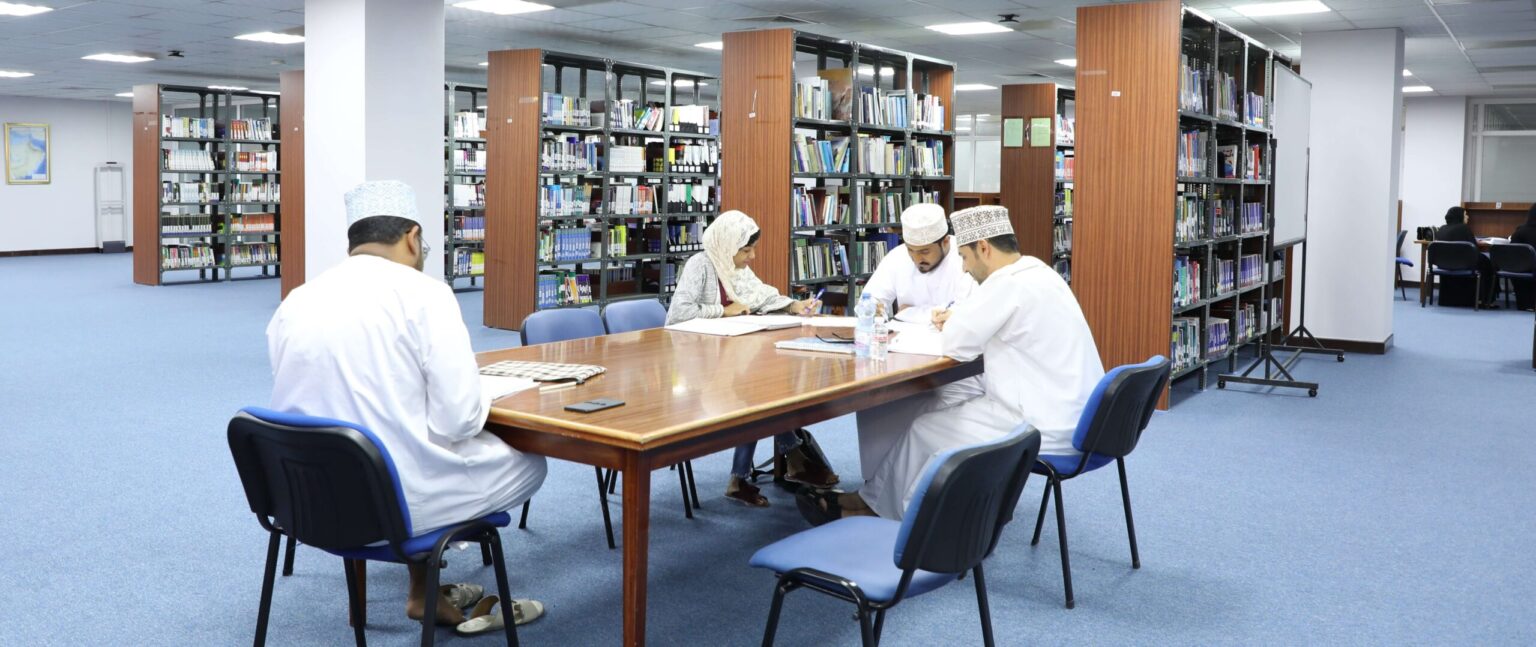Education is often seen as the foundation for personal growth, national progress, and future opportunities. In Oman, where the importance of education has been embraced at every level, libraries and knowledge centers play a remarkable role in shaping this foundation. These spaces are not only places where books are stored, but also powerful hubs that nurture creativity, innovation, and lifelong learning. For Omani students, researchers, and communities, libraries and knowledge centers serve as gateways to both traditional knowledge and the modern skills required to thrive in a rapidly changing world.
Libraries as Gateways to Knowledge
The role of a library goes far beyond being a silent room filled with bookshelves. In Oman, libraries are gateways to knowledge that bridge the gap between students and the vast resources they need to succeed. Whether it is a school library, a public library, or a specialized academic library, each one provides access to a world of information.
In a country where education is highly valued, these libraries have become essential to students who seek academic success. They provide textbooks, research materials, digital databases, and even quiet study spaces where focus can flourish. The presence of knowledge centers in Oman ensures that learning does not stop within the classroom walls but continues through independent exploration.
The Evolution of Knowledge Centers in Oman
Knowledge centers in Oman have evolved in line with the nation’s commitment to modernization and progress. Once seen as traditional spaces of reading, many of them now incorporate advanced technologies and digital services that appeal to the younger generation. With access to e-books, online journals, multimedia tools, and digital archives, knowledge centers make sure that students and researchers are not left behind in the digital age.
These centers also host workshops, training programs, and cultural events that go beyond reading. They focus on holistic development, encouraging skills such as critical thinking, problem-solving, and digital literacy. This evolution demonstrates that knowledge centers are not just keepers of books but innovators in the field of education.

Supporting Academic Excellence
Students in Oman often find themselves balancing heavy coursework with the pressure of excelling in examinations. Libraries and knowledge centers act as support systems that make this journey smoother. They provide reliable academic materials, curated research resources, and guidance from librarians who assist students in navigating vast information.
More importantly, these spaces promote a disciplined learning culture. The quiet and focused environment of a library motivates students to dedicate time for revision, group discussions, or independent study. For many, it becomes a second home where dreams of academic achievement are nurtured with persistence and dedication.
Encouraging a Culture of Reading
Reading has always been one of the strongest ways to develop imagination, language skills, and analytical thinking. Libraries in Oman encourage this culture by providing access to books in Arabic, English, and other languages that appeal to different interests and age groups.
Children’s reading sections, storytelling sessions, and reading competitions inspire young minds to fall in love with books early in life. For adults, libraries offer a chance to explore new ideas, expand professional knowledge, and develop hobbies through literature. This culture of reading, when cultivated consistently, becomes a cornerstone of national development as it strengthens communication, empathy, and innovation.
Libraries as Community Builders
Beyond their role in academics, libraries and knowledge centers are powerful community builders in Oman. They bring people together across different age groups, professions, and cultures. Events such as book fairs, author meet-and-greets, and cultural discussions foster a sense of belonging and shared learning.
For young people, these centers become safe and inspiring spaces where they can spend time productively. For professionals and researchers, they act as networking platforms where ideas are exchanged and collaborations are born. In this way, libraries and knowledge centers create social bonds that strengthen the educational fabric of society.
Digital Transformation and Modern Education
The shift towards digital education has been global, and Oman is no exception. Libraries and knowledge centers have embraced digital transformation by offering access to online platforms, virtual learning resources, and cloud-based archives. This not only supports distance learning but also ensures that students in remote areas have access to the same quality of knowledge as those in cities.
Technology has made these centers more engaging. Interactive learning tools, digital storytelling, and e-learning sessions make studying less monotonous and more interactive. By blending tradition with technology, Omani libraries continue to stay relevant in the era of smartphones and online learning.
Empowering Teachers and Researchers
Education is not only about students; teachers and researchers also require strong support systems. Knowledge centers in Oman empower educators by providing resources that enhance teaching strategies and lesson plans. Researchers benefit from access to academic journals, research databases, and historical archives that are often crucial for high-level studies.
Workshops and training sessions in libraries equip teachers with modern methods of classroom engagement. At the same time, researchers gain opportunities to present findings and discuss new ideas. This support ensures that the educational ecosystem remains strong at every level.
Preserving Heritage and Identity
While modernization is crucial, preserving cultural heritage is equally important. Libraries and knowledge centers in Oman play a vital role in archiving manuscripts, historical texts, and cultural records that reflect the nation’s identity. These resources serve as windows into Oman’s past while educating the younger generation about their roots.
By protecting this knowledge, libraries not only safeguard tradition but also encourage pride in national history. Students and researchers alike find inspiration in these archives, reminding them that progress must always be rooted in a strong sense of identity.

Lifelong Learning Opportunities
The journey of learning never truly ends, and libraries make sure of that. Knowledge centers in Oman encourage lifelong learning by offering resources to people of all ages. Whether it is a child learning the alphabet, a university student exploring complex theories, or a retired professional picking up a new hobby, libraries support them all.
Programs for adult literacy, skill development, and community education ensure that learning remains accessible to everyone. This inclusive approach is what makes libraries invaluable they are not just for students but for every citizen who wishes to grow.
Challenges and Opportunities
Like every institution, libraries and knowledge centers in Oman face challenges. The rapid pace of digitalization requires continuous investment in technology and training. Some communities may still lack easy access to modern facilities, and encouraging consistent reading habits in a digital world can be difficult.
However, these challenges are also opportunities. By adopting mobile libraries, expanding digital platforms, and introducing engaging learning programs, libraries can continue to thrive. The government’s commitment to education and the growing curiosity of the youth are strong forces that will help overcome these hurdles.
The Future of Libraries in Oman
Looking ahead, the future of libraries and knowledge centers in Oman is promising. With continuous innovation, these spaces are expected to become even more integrated with digital education, offering virtual reality learning, AI-assisted research, and personalized reading experiences.
At the same time, their role as cultural guardians and community hubs will only grow stronger. As Oman continues to invest in education, libraries will remain at the heart of the nation’s progress. They will inspire students, empower teachers, connect communities, and preserve heritage all while embracing the future of learning.
Conclusion
The role of libraries and knowledge centers in Oman’s education cannot be overstated. They are far more than buildings filled with books; they are living, breathing spaces of growth, discovery, and inspiration. By nurturing academic excellence, promoting reading, embracing digital transformation, supporting educators, and preserving heritage, they hold the key to a brighter future for the nation.
For every student who finds focus in a quiet corner, for every teacher who discovers a new teaching method, and for every citizen who rediscovers the joy of learning, libraries in Oman remain a source of strength. As the world continues to change, their role will remain timeless ensuring that knowledge, in all its forms, continues to illuminate the path of education.
Do follow Gulf Magazine on Instagram.
Also Read – Inspiring Student Exchange Programs in Oman Building Global Bridges



